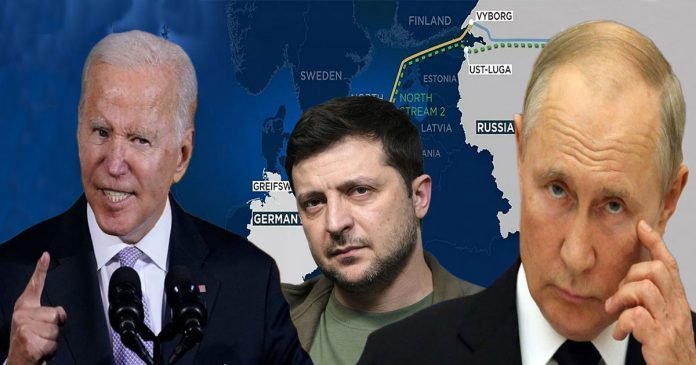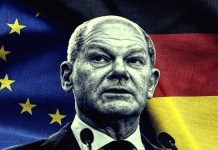UK energy bills will rise by 80% in October as the regulator announces hike.
Households in Britain face a leap in energy bills from October after the regulator raised the energy price cap, taking the average gas and electricity bill to £3,549 a year.
This extortionate jump in energy bills had been forecast for weeks, but the specific numbers released Friday morning by Britain’s energy regulator state a typical British household would pay £3,549 pounds over a year for electricity and natural gas, from the current £1,971.
This is an unsustainable hit to households and businesses in a country already reeling from double-digit inflation. “This will be devastating for many families,” Jonathan Brearley, chief executive of the regulatory agency, Ofgem, told the BBC. Looking into early next year, he said, “the difficult news I have to give today is that prices look like they are continuing to rise.”
The increase in the so-called energy cap, which takes effect in October and covers about 24 million households, follows a 54 percent rise in April.
The announcement comes as households attempt to budget for a tough winter. Soaring energy bills have fuelled rampant inflation, which breached 10% last month and is forecast by some economists to climb to 18% from January.
Ofgem said it will not give projections for the January measure because the market remains “too volatile” but warned that prices “could get significantly worse through 2023”. The new cap will affect 24 million households – about 85% of the population.
That number includes about 4.5 million prepayment meter customers, who will pay on average an additional £59 a year.
Jonathan Brearley, the chief executive of Ofgem, said: “We know the massive impact this price cap increase will have on households across Britain and the difficult decisions consumers will now have to make. I talk to customers regularly and I know that today’s news will be very worrying for many.”
Brearley said Russia’s invasion of Ukraine and reduction of gas supplies to Europe had driven the rise in wholesale gas prices. He said that had left Ofgem “no choice” but to reflect cost increases in the price cap.
He added: “The government support package is delivering help right now but it’s clear the new prime minister will need to act further to tackle the impact of the price rises that are coming in October and next year.
“We are working with ministers, consumer groups and industry on a set of options for the incoming prime minister that will require urgent action.”
Brearley told BBC Radio 4’s Today programme that “the truth is, this is beyond the capacity of the regulator and the industry to address”. He said the next prime minister needs “to act urgently and decisively” to tackle the situation.
The Ofgem boss said winter gas prices were 15 times higher than normal conditions, and were equivalent to paying £400 to £500 to fill up a car with petrol.
Ofgem’s announcement will pile further pressure on the government to urgently introduce further measures to help households this winter. The victor in the Tory leadership contest between Liz Truss and Rishi Sunak is expected to announce a plan shortly after the race’s conclusion on 5 September.
The truth is this energy crisis started long before Russia’s intervention in the Ukraine war.
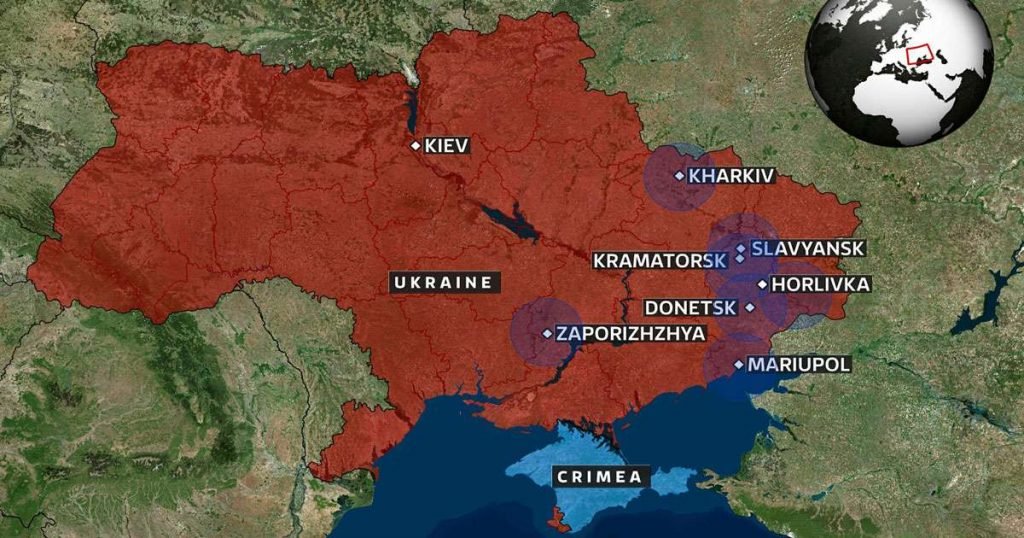
These extortionate gas prices are the latest economic blow to European consumers and businesses but for Brearley to place the blame exclusively on the Russian invasion of Ukraine is to let the profiteering energy companies off the hook.
It also absolves the US and their part in plunging Europe into this present crisis.
Energy prices have been on the increase long before the Russian intervention in Ukraine.
Starting from August 2021, high European wholesale natural gas prices began severely impacting the United Kingdom. Due to a combination of unfavourable circumstances, including soaring gas demand in Asia, diminished gas supply from Russia to the European markets, low gas stockpiles, and a series of breakdowns at various electrical facilities, consumers in the United Kingdom faced steep increases in gas prices.
Going back to October 2021, these gas hikes not only hit consumers, utility companies, and businesses dependent on carbon dioxide were all impacted. The crisis caused some smaller domestic suppliers in the United Kingdom to go out of business, as it affected almost two million consumers.
The primary cause of these price rises has been a surge in the wholesale price of natural gas worldwide. Domestic supply only covers about 40% of the United Kingdom’s needs, while the rest is imported from neighbouring countries, such as Norway and the Netherlands, and further afield in Qatar and the United States, where Russia used to supply around 5% of our gas to the UK market, that has now stopped.
Gas prices rose by 250% between January and September 2021, with a 70% rise in the month of August alone. The price increase was caused by a global surge in demand as the world quit the economic recession caused by COVID-19, particularly due to strong energy demand in Asia.
In 2021 Russia supplied 40%-50% of the European Union’s consumption, while Algeria, Norway and LNG imports covered much of the rest. Immediately prior to the Covid crisis Russia supplied less than usual to Europe – it supplied gas in accordance with long-term contracts, but did not supply additional gas on demands from the spot market.
The Economist Intelligence Unit reported at the time that Russia had limited extra gas export capacity because of high domestic requirements with production near its peak, as well as technical issues.
From January-June 2021 Russia supplied about 22% more gas to Europe than in the same months in 2020, and almost the same amount as in 2019. Algeria had also increased supplies in those months, but other countries had supplied less, including Norway, the UK, and the Netherlands.
Nord Stream 2 would have ensured Europe’s energy supply.
The completion of Nord Stream 2 would have seen an end to Europe’s Energy problems at least for the immediate future. It would have meant Europe would have to rely on Russia to be a good market supplier but that circumstance applies to all international relations when operating trade deals. At a minimum, it could well have provided time for other energy sources to be ramped up as they have been forced to do under the current conditions.
In 2021 Europe’s energy problem was all but resolved with the near completion of Nord Stream 2. Built under the Baltic Sea to carry gas from Russia’s Arctic region to Germany. Nord Stream 2 would carry twice the amount of gas into western Europe. The Russian German gas pipeline was 98% complete When US intervention came about, U.S. officials had long opposed the pipeline, which would allow Russia to export gas directly to Germany.
The US wanted Nord stream 2 stopped.
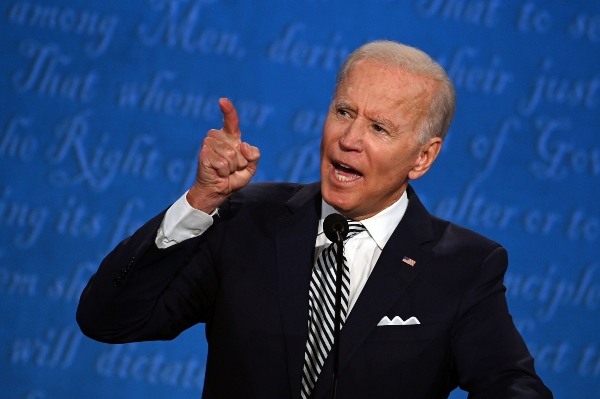
Nord Stream 2 had created as many issues for Europe as it was going to solve, unfortunately, many of those issues were about corporate gain, as well as corporate loss. If there is one thing we know to be true, the Olicharcy does not like loss!
A series of US interventions were punished onto Europe in an attempt to stop the pipeline.
The pipeline had been hanging over U.S.-German relations since former President Donald Trump said it could turn Germany into a “hostage of Russia” and approved some sanctions.
In 2021 the Pipeline and gas journal website published this article from WASHINGTON (Reuters) — Two senior U.S. Senate Democrats urged President Joe Biden’s administration on Tuesday to make a full diplomatic push to stop the Nord Stream 2 natural gas pipeline from Russia to Europe, increasing pressure on the issue from members of his party.
Senators Bob Menendez, the influential chairman of the Senate Foreign Relations Committee, and Jeanne Shaheen, who chairs the panel’s Europe subcommittee, sent a letter asking Secretary of State Antony Blinken to implement sanctions allowed under existing laws.
“This pipeline must be stopped and your leadership is required towards that end,” they wrote.
“We do… urge that the effort to build strong Nord Stream 2 sanctions packages be accelerated to meet the urgency of the moment,” they said, noting that the pipeline will be completed this year if construction continues unimpeded.
The State Department did not immediately respond to a request for comment.
Nord Stream 2, led by Russian state energy company Gazprom with its Western partners, would double the capacity of an existing link to take Russian gas to Germany under the Baltic Sea.
The pipeline would bypass Ukraine, likely depriving it of lucrative transit revenues and potentially undermining its efforts against Russian aggression.
U.S. companies also want to sell Europe liquefied natural gas (LNG) as an alternative to Russian gas, which is usually cheaper.
President Joe Biden’s administration chose not to try to kill it with U.S. sanctions, instead, as a compromise, it negotiated a pact with Germany that threatened to impose costs on Russia if it sought to use the pipeline to harm Ukraine or other countries in the region.
But of course, there is always more to the plot than that which is given for public consumption.
Russia provided around 40% of the natural gas consumed in the European Union; approximately 80% of those exports travelled through pipelines across Ukrainian soil prior to arriving in the EU.
It was these overland supply lines themselves that created issues in Western Europe. The Russia–Ukraine gas disputes that started from 2005 onwards cause massive volatility in the markets involving billions in loss of gas and revenue.
The disputes were brought about by Ukraine literately stealing billions in gas from Russia, this created instability in supplying other countries with gas. At one point Russia turned the supply off costing their customers substantial economic loss.
According to the EU Commission and Presidency, the Russia–Ukraine gas disputes caused irreparable and irreversible damage to customers’ confidence in Russia and Ukraine, causing Russia and Ukraine to no longer be regarded as reliable partners.
There were several theories as to alleged political motives behind the gas disputes, the fact Ukraine actually stole gas from the supply lines was lost to political intrigue. It was claimed Russia was exerting pressure on Ukrainian politicians or attempting to subvert EU and NATO expansions to include Ukraine.
Others suggested that Ukraine’s actions were being orchestrated by the United States. Both sides tried to win sympathy for their arguments by fighting a PR war. However, what cannot be disputed is the supply of gas through Ukraine was compromised.
Following the ongoing disputes, Russia announced plans to completely abandon gas supplies to Europe through Ukraine after 2018. Gazprom has already substantially reduced the volumes of gas it transits across Ukraine, and expressed its intention of reducing the level further by means of transit diversification pipelines (Nord Stream, Turkish Stream, etc.). Of course, delays in pipeline alternatives meant that the 2018 target was missed.
- The US are determined to disrupt Russian Gas flow.
- The US cold war mentality and its involvement in Russia-European geopolitics have created a real war.
- The US involvement in Ukraine gas is unprecedented, and Biden’s connections run deep.
- Some people are getting extremely rich from everyone else’s suffering
NEW: The BIDENS are entangled in a Ukrainian corruption scandal:@JoeBiden pushed Ukraine to fire a prosecutor seen as corrupt.
— Kenneth P. Vogel (@kenvogel) May 2, 2019
BUT the prosecutor had opened a case into a company that was paying HUNTER BIDEN.
The Bidens say they never discussed it. https://t.co/tblUPYPJMG
Vested interests are always a motivation…
Joe Biden was the White House’s go-to guy during the Ukraine crisis of 2014, touring former Soviet republics and reassuring their concerned leaders, but he was not the only Biden involved in the region.”
The son of the then US Vice President, Hunter Biden, joined the board of directors of Ukraine’s largest private gas company ‘Burisma’ which was controlled by a confidant of former Ukrainian President Viktor Yanukovych.
Biden joined the board of Burisma Holdings owned by Ukrainian oligarch and former politician Mykola Zlochevsky, who was facing a money laundering investigation just after the Ukrainian revolution, in April 2014.
At the time the move raised some eyebrows in the US, given the Obama administration’s attempts to manage the ongoing crisis in Ukraine, however, it was determined by the White House that nothing fishy was going on.
The White House at the time said it can’t see any problem in Biden’s appointment. Press Secretary Jay Carney refused to comment further, stating only that “Hunter Biden and other members of the Biden family are obviously private citizens, and where they work does not reflect an endorsement by the administration or by the vice president or president.”
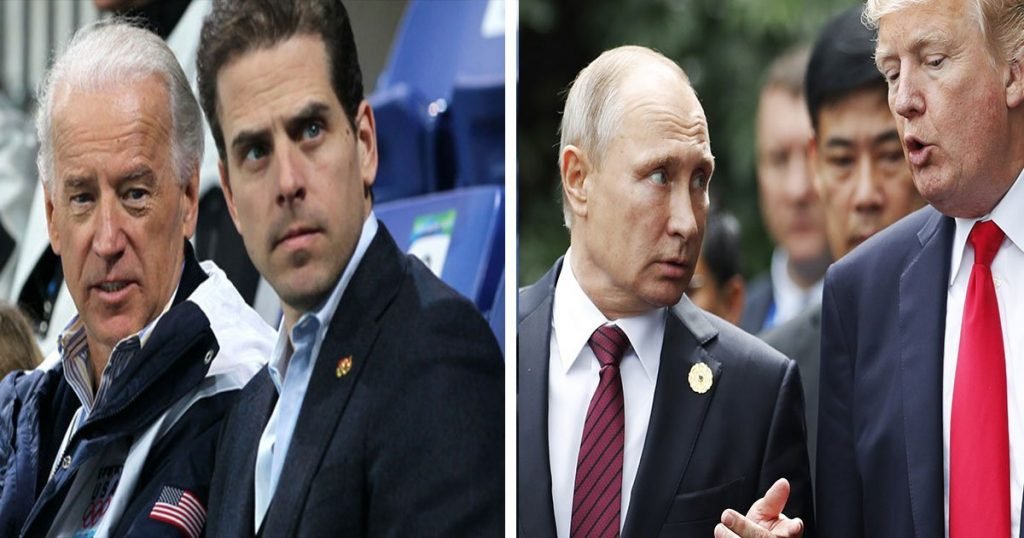
Apart from the fact, Hunter Biden, who had no background in utilities or European markets, was reportedly paid $3 million to sit on the Ukrainian gas company, Burisma board.
Burisma, the natural gas conglomerate, is headed by Ihor Kolomoisky — a citizen of Ukraine, Cyprus (the money-laundering capital of Europe), Austria and Israel. Known for business practices that would bring to mind Al Capone, he took over Ukrainian gas companies, funded politicians and was the poster boy of corruption in a country ranked by the World Economic Forum as one of the most corrupt on the planet. He is the kind of guy James Bond would go up against and probably lose.
Many questions were asked about how Joe Biden’s unqualified son got on the board of a US funding conduit when his father was the overseer of the operations in Ukraine.
More controversy surrounding Biden and Burisma Group came after Dec. 8, 2015: Biden visited Kyiv again and spoke out against bureaucratic corruption that he said was eating Ukraine “like a cancer.” Biden threatened to withhold loan guarantees unless Ukraine’s top prosecutor, Viktor Shokin, who was claimed to have also been accused of corruption, was removed.
Shokin had inherited an investigation into Burisma, there were claims and counterclaims stating the investigation was dormant others claiming Shoken had tried to illicit bribes to stop the investigation. Either way, Biden pushed for the prosecutor’s termination, Bloomberg reported earlier this year, citing a former Ukrainian official.
While visiting Kyiv in December 2015, then-U.S. Vice President Joe Biden warned Ukrainian President Petro Poroshenko that, if he did not fire Shokin, the Obama administration was prepared to withhold $1 billion in loan guarantees. Biden later said: “I looked at them and said, ‘I’m leaving in six hours. If the prosecutor is not fired, you’re not getting the money.’ […] He got fired. And they put in place someone who was solid at the time.” Whether or not Shokin’s successor was “solid” was never confirmed.
Shokin was dismissed by Parliament in late March 2016. In 2016, The New York Times published an article that suggested that “the credibility of the vice president’s anti-corruption message may have been undermined” by Hunter Biden’s dealings with the company.
March 29, 2016: The Ukrainian Parliament voted to remove Shokin.
Jan. 23, 2018: Biden, at a Council on Foreign Relations event, detailed how he had threatened to withhold funds from Ukraine if Shokin was not removed.
On February 27, 2020, a Ukrainian court ruling forced investigators to open a probe on Joe Biden’s pressure on Poroshenko to fire Shokin. The investigation was closed in November 2020 after the election of Joe Biden as President of the United States.
Many questions are still left unanswered and investigations still ongoing. Was some of that $3 million actually US taxpayer money? And what do Hunter and Joe know about Burisma’s role in the burning and shooting deaths of over 100 people in a trade-union building in Odesa… and moving a Burisma-funded paramilitary unit into a region where Burisma’s interests were being challenged by Ukrainian regional authorities… Burisma won that fight.
What became very clear over the next six years is that by proxy, Ukraine became the battleground for both Russia and the US. It was also clear the US not only pumped billions into feeding that war, but they also maintained the strongest political pressure in stopping Russia from supplying the EU with Gas, and no matter the consequences Nord Stream 2 would not go ahead.
Biden’s and the US’s involvement in European gas leaves a lot of unanswered questions.
No matter the personal rivalry, both Biden and Trump agreed on one thing. Nord Stream 2 would be stopped.
In December 2019, the then US president Donald Trump signed a law that imposed sanctions on any firm that helps Russia’s state-owned gas company, Gazprom, finish a pipeline into the European Union.
The sanctions targeted firms building Nord Stream 2, the controversial undersea pipeline that would allow Russia to increase gas exports to Germany.
The US claimed it considered the project a security risk to Europe.
Both Russia and the EU strongly condemned the US sanctions.
Trump said the 1,225km (760-mile) pipeline, owned by Russia’s Gazprom, could turn Germany into a “hostage of Russia”.
The US sanctions angered Russia and the European Union, which said it should be able to decide its own energy policies.
The then German Chancellor Angela Merkel said she was “opposed to extraterritorial sanctions” against the Nord Stream 2 project.

German foreign minister Heiko Maas struck a more combative tone, saying the sanctions amounted to “interference in autonomous decisions taken in Europe”.
The bloc eventually agreed to strengthen regulations against Nord Stream 2, rather than stop it completely, and to bring it under European control.
In 2019, Russia and Ukraine signed a five-year, $7 billion deal on the transit of Russian natural gas to Europe. There had never been an issue from the US over Russia supplying gas via Ukraine, the only issue seemed to be Nord Stream 2.
The U.S. and Germany have long fought over the pipeline, which will bypass Ukraine, allowing Russia to ship gas directly to Europe without paying billions in transit fees to Kyiv. But U.S. officials signalled they had not given up on stopping the project scrambling to contain the damage by striking a pact with Germany.
The €9.5 billion Russia-to-Germany links under the Baltic Sea — Moscow’s second — would significantly increase the amount of natural gas able to be sent directly to the EU without paying the billions in annual transit fees to use Ukrainian pipelines.
Seeking to get Berlin to commit to a plan involving green energy investments in Ukraine, Kyiv’s inclusion in the Three Seas Initiative for regional energy security, and potentially having the U.S. and Germany take over responsibility from Russia for paying Ukraine’s lost gas transit revenues through 2024
In 2020 alone Ukraine netted €2.1 billion from the pipelines crossing their land., but the figure is far below the historic revenues Kyiv received before the first direct Nord Stream pipeline came online, no one with any interest in Ukrainian Gas wanted that golden goose to stop laying.
In July 2021 (Reuters) as the Nord Stream 2 pipeline was 98% completed, we witnessed the new US president Joe Biden take a very different tack, sanctions didn’t work. The EU wouldn’t play ball, besides the pipeline was all but complete.
The new United States initiative was unveiled with an agreement on the Nord Stream 2 gas pipeline under which Berlin pledged to respond to any attempt by Russia to use energy as a weapon against Ukraine and other Central and Eastern European countries.
The pact in effect stated: If Russia attempts to “use energy as a weapon or commit further aggressive acts against Ukraine,” Germany will take steps on its own and push for actions at the EU, including sanctions, “to limit Russian export capabilities to Europe in the energy sector,” the statement said.
It did not detail specific Russian actions that would trigger such a move. The fact again that both Russia and the US were conducting a proxy war within internally recognised Ukrainian borders gave the chances of Russian aggression to be recorded as very high, the pact stated “We elected not to provide Russia with a road map in terms of how they can evade that commitment to push back,” a senior State Department official told reporters, speaking on condition of anonymity.” We also will certainly look to hold any future German governments accountable for the commitments that they have made in this,” the official said.
Under the agreement, Germany will “utilize all available leverage” to extend by 10 years the Russia-Ukraine gas transit agreement, a source of major revenues to Ukraine that expires in 2024.
Germany will also contribute at least $175 million to a new $1 billion “Green Fund for Ukraine” aimed at improving the country’s energy independence.
What was noticeable was nowhere was there a mention of security risk to Europe by the established pipelines of Russian gas crossing Ukraine.
One of two conclusions can be drawn, one, if it came to it for any reason these pipelines could be easily shut off, or two, it was and is a viable supply route that creates a lot of wealth for Ukraine and the individuals involved in the Ukrainian gas companies, wealth obtained for doing little to nothing apart from allowing the pipeline to pass through Ukraine.
On February 22 2022, Russia recognises Donetsk and Luhansk as independent states this came after several days of intense shelling from Ukraine forces on the frontline in the Donbas region, the epicentre of Ukraine’s 8-year civil war.
On February 22 2022, Germany halted the Nord Stream 2 Baltic Sea gas pipeline project.
On 24 February 2022, Russia invaded Ukraine in a major escalation of the Russo-Ukrainian War that began in 2014.
Since the Ukrainian conflict escalated from civil war to Russian intervention in Feb 2022, the US forced Germany to close down Nord Stream 2 gas pipeline.
Amid rising global energy prices and higher demand, the United States has become the world’s largest exporter of liquefied natural gas.
Europe has dethroned Asia as the biggest destination for US liquefied natural gas as the energy-starved region seeks to slash its dependence on Russian supplies.
And of course, Joe Biden has multiple ties to Liquefied Natural Gas pioneer Cheniere Energy. go deep. Andrew Goldman, the co-founder of Western LNG was a former Biden adviser.
Biden knew, that his ties to Goldman bring into focus his significant connections to the much larger liquefied natural gas firm Cheniere Energy. Goldman’s fellow Western LNG co-founder, CEO Davis Thames, was previously senior vice president and chief financial officer of Cheniere Energy, a company that paid Biden’s current climate adviser more than a million dollars to serve on its board until 2018. And a former Biden adviser lobbied for the company.
Whether these gathering circumstances were orchestrated or came by chance, they have combined into the most undesirable outcome for Europe, war!
These consequences we see now are very much the result of these circumstances when Boris Johnson stated: “Our energy bills are rising… but Ukraine is paying in blood” the truth is some people are being paid billions for everyone else’s sacrifice.
In the end, no matter the circumstances, we all understand there will be individuals, groups and parties more interested in the conflict than resolution, ranging from the industrial arms complex to politicians on all sides, peace doesn’t stand a chance while ever there is profit to be made.
Support Independent Journalism Today
Our unwavering dedication is to provide you with unbiased news, diverse perspectives, and insightful opinions. We're on a mission to ensure that those in positions of power are held accountable for their actions, but we can't do it alone. Labour Heartlands is primarily funded by me, Paul Knaggs, and by the generous contributions of readers like you. Your donations keep us going and help us uphold the principles of independent journalism. Join us in our quest for truth, transparency, and accountability – donate today and be a part of our mission!
Like everyone else, we're facing challenges, and we need your help to stay online and continue providing crucial journalism. Every contribution, no matter how small, goes a long way in helping us thrive. By becoming one of our donors, you become a vital part of our mission to uncover the truth and uphold the values of democracy.
While we maintain our independence from political affiliations, we stand united against corruption, injustice, and the erosion of free speech, truth, and democracy. We believe in the power of accurate information in a democracy, and we consider facts non-negotiable.
Your support, no matter the amount, can make a significant impact. Together, we can make a difference and continue our journey toward a more informed and just society.
Thank you for supporting Labour Heartlands
